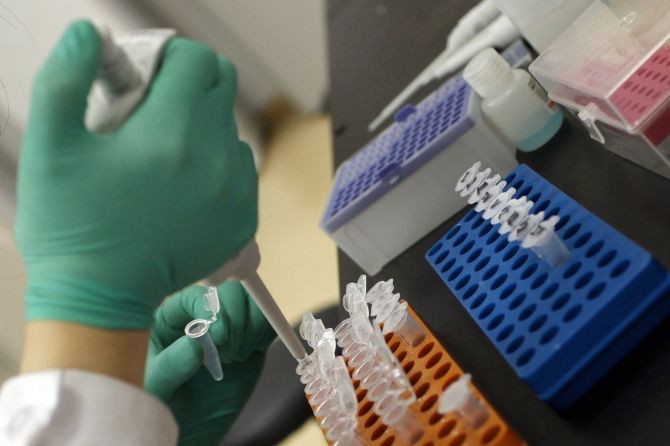Potential Antidote for Cocaine Overdose Developed

An injectable antidote that can reverse the effects of cocaine overdose in case of an emergency is being developed by the scientists at the Scripps Research Institute.
The solution has already been found to be effective on mice. Scientists, led by Kim Janda, director of the Worm Institute for Research and Medicine, are optimistic that they can move on to human trials and potentially develop a ‘viable treatment’.
The scientists are working on a passive cocaine vaccine. A passive vaccine is a drug-specific vaccine that can bind to the cocaine in the blood and make it ineffective.
“It’s like a sponge, you spill something and you go soak it up,” Janda said. “[When cocaine] is in the body, the antibodies bind to it and remove it either through kidney or liver- or it’s just degraded. The antidote either sequesters [cocaine] in the blood or pull them out of the brain. The antibodies can’t go into the brain themselves, but they can act as a vacuum cleaner to remove it from the brain,” reports FoxNews.
Janda and Treweek, a research associate at Janda’s laboratory, created the antidote by using a genetically engineered mouse that produced human antibodies that target the cocaine. The best among the antibodies discovered was GNCgzk.
In the preliminary trial, mice were first given a lethal overdose of cocaine and three minutes later they were injected with the antibodies. About half the untreated mice died.
F (ab’) 2-gzk – a stripped down version of the earlier discovered GNCgzk – was found to be most effective. This particular version not only brought the mortality down to almost zero but also did so at a much smaller dose than the other antibodies.
The researchers also found that the antidote was also successful in reducing seizures, twitching and erratic movements in the mice used for the experiment.
“This was just as important as reducing lethality,” said Treweek.” You don’t want to bring someone back from death just to have them to be a vegetable.”
Centers for Disease Control and Prevention says that, over 400,000 emergency room visits each year are cocaine related in the United States, while over 5,000 people die from overdose.
According to National Institute of Drug Abuse (NIDA), cocaine is a powerfully addictive central nervous system stimulant that is snorted, injected, or smoked. Crack is cocaine hydrochloride powder that has been processed to form a rock crystal that is then usually smoked. Users risk heart attacks, respiratory failure, strokes, seizures, abdominal pain, and nausea. In rare cases, sudden death can occur on the first use of cocaine or unexpectedly afterwards.
“Is there a need for it? Yes,” said Janda. “It could be something simple that a paramedic could have onboard [an ambulance] and just inject it. It’s easy.”
Janda added that this antibody can be administered to patients in the addiction recovery or detox programs along with other medications and counseling to aid recovery.



























